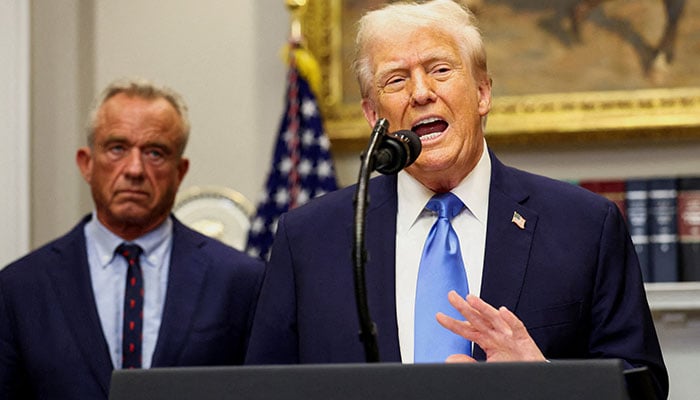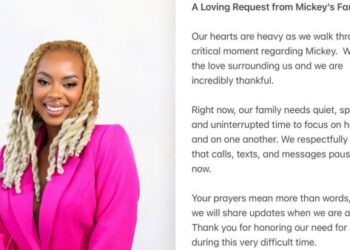Select Language:
WASHINGTON: President Donald Trump strongly recommended that pregnant women avoid Tylenol due to an unproven connection to autism and called for significant changes to routine infant vaccinations. His comments, delivered at the White House on Monday, included sweeping but scientifically unsupported advice, amidst ongoing efforts by the White House to overhaul U.S. health initiatives—raising concerns among medical and scientific communities about the potential undermining of established medical consensus.
The American College of Obstetricians and Gynecologists has long considered paracetamol—the main ingredient in Tylenol—as one of the safest pain relievers during pregnancy. Nevertheless, Trump emphasized that “taking Tylenol isn’t good” and urged pregnant women to “fight like hell not to take it,” suggesting only severe fevers warranted use of the over-the-counter medication. This advice contradicts established medical understanding that both fever and pain can significantly threaten maternal and fetal health.
Arthur Caplan, head of NYU’s medical ethics division, criticized Trump’s stance as “dangerous,” “unscientific,” and filled with misinformation. “I worry pregnant women might feel guilty if they took Tylenol. They could think they betrayed their babies or were unethical for trying to manage a fever—that’s simply not fair or accurate,” Caplan told AFP.
Meanwhile, the Food and Drug Administration offered a more cautious tone, stating in a letter to doctors that “a causal relationship has not been established” and that scientific debate remains open. Recent research suggests a possible link between Tylenol exposure during pregnancy and autism, but other studies have found no such connection. Experts advise pregnant women to consult healthcare providers before discontinuing any medication.
Research from a recent literature review indicates that further investigation is necessary before making definitive claims. Dr. David Mandell, a psychiatric epidemiologist at the University of Pennsylvania, noted that the potential risks of taking Tylenol might be lower than the dangers associated with uncontrolled infections during pregnancy.
Trump’s emphasis on questioning established vaccine safety also drew criticism. Alongside his repeated assertions of vaccine risks—specifically targeting the MMR vaccine for measles, mumps, and rubella—and suggestions to limit aluminum content in vaccines, he proposed radical changes to the routine vaccination schedule for infants. Specifically, he claimed there was “no reason” to vaccinate newborns against hepatitis B, a stance directly opposing decades of medical consensus that supports early vaccination to prevent serious health issues like liver damage and cancer.
This push comes shortly after an influential advisory panel, appointed by Kennedy, declined to recommend delaying the first hepatitis B vaccine dose by a month, citing the potential for increased vulnerability to disease. Medical professionals, including the American Academy of Pediatrics, warned that delaying childhood vaccinations could leave children susceptible to preventable diseases at critical times.
In his controversial remarks, Trump also promoted the use of leucovorin—a form of vitamin B used primarily to mitigate chemotherapy side effects—as a potential therapy for autism, citing it as an “exciting” new approach, despite the lack of conclusive evidence.
Throughout the conference, the president echoed anti-vaccine sentiments, with officials and supporters nodding along despite the lack of scientific support. His statements questioned the safety of standard vaccines and suggested eliminating the use of aluminum adjuvants, even as extensive research has confirmed their safety. The proposed change in vaccination routines has been met with firm opposition from health experts, emphasizing that delaying or spacing out vaccines increases the risk of outbreaks and endangers children’s health.
Medical specialists underscored that the causes of autism are complex and largely rooted in genetics. The ongoing promotion of misinformation by figures like Kennedy and Trump risks undermining public trust in vital immunization programs designed to prevent life-threatening diseases.







